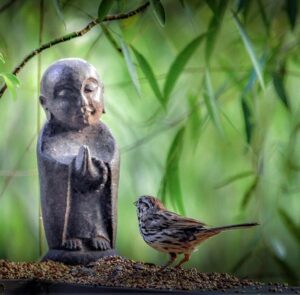Humility is King (Blog 16)

HUMILITY IS KING
#1: Have Modesty with Confidence
Humility is a trademark characteristic of spiritual maturity. It comes across as a modest yet confident disposition that has nothing to prove. It’s also an antidote to humiliation. When you feel humiliated, what hurts is your ego, but your ego is not who you really are. When left unchecked, your ego will cause you to take yourself too seriously, overindulge in taking credit, and boast about your accomplishments. Humiliation has a silver lining: it deflates a swollen ego. Smacking down feelings of being more special than anyone else, it can remind us that we are just as special as everyone else.
From the Bible’s Book of Proverbs, we get the prophetic and familiar saying, “Pride cometh before a fall.” This isn’t referring to the healthy flavor of pride - pride in one’s work, for example. Rather, the proverb implies that hubris (or arrogance) is what comes before a fall. Hubris is not a sustainable attitude for living because it fertilizes a delusion of infallibility. It disables our capacity to objectively examine ourselves and what we’re saying or doing. Conversely, humility fertilizes an expansion of wisdom because it transforms our tunnel vision of what we think we know into a wide-angle view that expands our awareness.
It is a truism that too much of a good thing quickly becomes a bad thing. Modesty and confidence are no exception. Overdose on modesty, and your originality will sink into a bland soup of conformity. Overdose on confidence, and your ego will ignite in an abrasive, overbearing blaze. On their own, these two character traits become liabilities without one another because they’re meant to balance each other out. When modesty and confidence are expressed together, they harmonize beautifully.
#2: Be Teachable
Being humble is a boost for creativity. That’s because a humble mindset is an open mindset. When we know that we don’t have all the answers, we’re automatically pulled toward inventive, out-of-the-box solutions. Being humble also keeps us from becoming negative and assuming the worst when experiencing challenges. Humility refuses to jump to negative conclusions and realizes that any problem can be solved with patience, trial, and yes… even error. The answers and the truths we seek can be shy, but humility attracts them like a magnet.
The very best teachers are those who are humble enough to be taught by their students. These “teacher-students” are always open to new ideas and different insights. They aren’t attached to the way things have always been because they realize that being an “expert” usually comes with an expiration date.
#3: Beware of the Ego Pendulum
Some people try to compensate for their feelings of inadequacy by attempting to convince others (and themselves) that they are in some way superior. The more superior they claim to be, the more difficult it becomes to uphold that image. This, of course, stokes within them even more feelings of inadequacy (as well as inauthenticity). The way to stop this ego pendulum swing is to drop the idea of hierarchy and embrace the truth that we’re all unique pieces of the same big puzzle. One piece is no more vital than any other piece. Your role, your circumstances, your resources and talents are beyond comparison because there is no one who has exactly what you have and no one who has experienced the exact same internal and external challenges that you’ve experienced. It’s wonderful to be an inspiration for others, and it’s helpful to look up to those who inspire you. But to stay balanced, it’s vital to take the concept of superiority - in either direction - out of your perspective.
Always be on the lookout for that sense of “better than” which can slowly and stealthily creep into your consciousness. This can happen to anyone. And remember… humility is a slippery thing to hold. At the precise moment you congratulate yourself for having it, you’ve lost it.
(Ask questions and post comments through email or on this website’s social media links)


